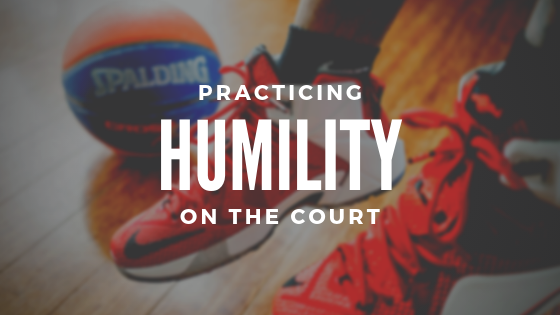Today, more and more professional basketball recruiters are placing a high value on humility when scouting potential players. A team of humble, selfless athletes is a common recipe for success in almost every sport, and it is a fairly collective mindset that signing players with short tempers or bad attitudes is a surefire way to bring the team down as a whole. That is why leaders able to express humility both on and off the court are highly sought after in today’s basketball world.
Putting the team before yourself is the first step in being a humble athlete. It is imperative that you learn to discipline yourself and put your ego aside for the good of your coaches and teammates. Heated situations arise in sports fairly often. It is during these situations when a player’s humility can truly be tested. As the Association for Psychological Science puts it, “Just like courage is easier to judge in the context of danger, humility ought to be easier to judge in the contexts that evoke egotism, defensiveness, and conflict.”
For one’s humility to be tested, he or she must face criticism, failure, rejection, or conflict, remaining poised throughout. To maintain that poise, approach the situation with an open mind and willingness to respect different points of view. Being open to feedback is another important component of humility that takes a decent amount of patience. As a basketball player, feedback and constructive criticism are absolutely necessary in order to grow and improve your skills. Similarly, humble players must be able to recognize and compliment the success of others, whether it be about their athletic skills or congratulating them after a win.
Being teachable is another important aspect of humility. Coaches want to work with players that are willing to listen, learn, and understand the value of others’ expertise. Flexibility in learning these new methods is crucial as well, being, again, open to what others have to share and accepting newer strategies. For example, you as a player may have a specific shooting drill that you abide by, but your coach sees where you can improve and suggests a newer exercise. Simply hearing your coach out and trying this exercise is mutually beneficial, as it also builds trust among the two of you.
In conclusion, humility is all about self-assessment, openness, and appreciation for others. When applied to basketball specifically, these are some of the most invaluable skills to have as a player, and as a coach.


